Home>diy>Building & Construction>What Does A Construction Inspector Do
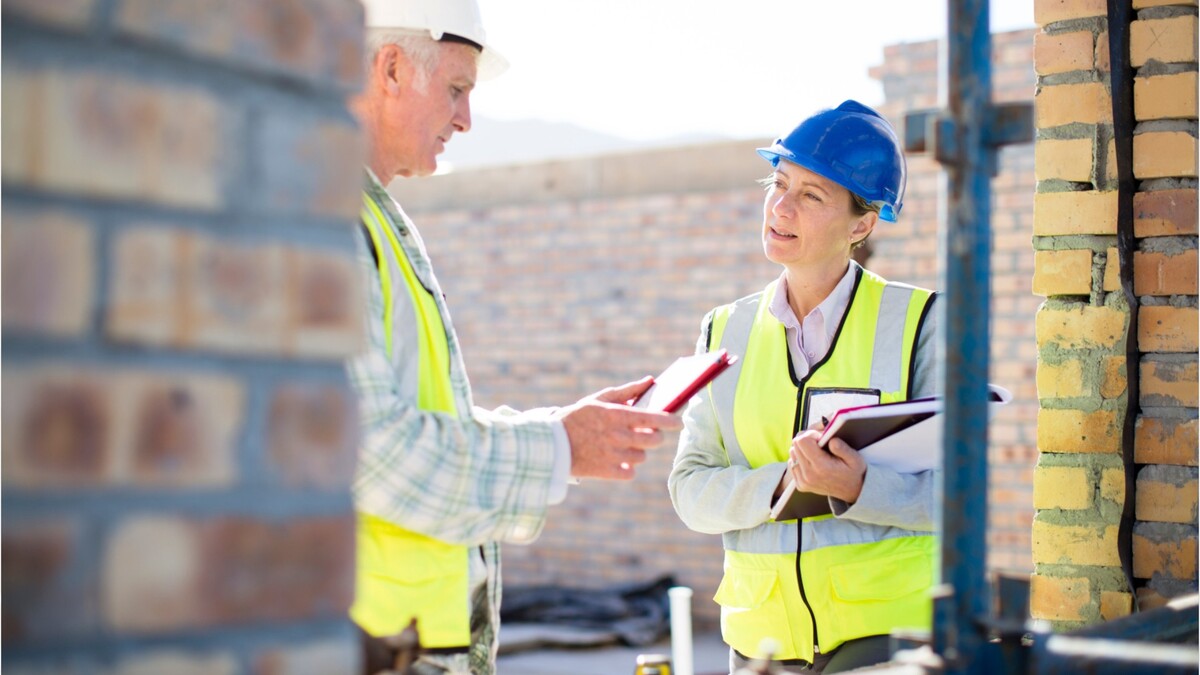

Building & Construction
What Does A Construction Inspector Do
Modified: December 7, 2023
Find out what the role of a construction inspector entails in the building construction industry and how they ensure compliance and quality.
(Many of the links in this article redirect to a specific reviewed product. Your purchase of these products through affiliate links helps to generate commission for Storables.com, at no extra cost. Learn more)
Introduction
Welcome to the world of construction inspection! If you’ve ever wondered about the role of a construction inspector, you’re in the right place. In this article, we will explore the responsibilities, skills, and importance of construction inspectors in the building industry.
Construction inspectors play a vital role in ensuring that construction projects meet the highest standards of quality, safety, and compliance with building codes and regulations. They are experienced professionals who possess a thorough understanding of construction processes and possess the skills to effectively assess the various stages of a project.
Inspectors work closely with architects, engineers, contractors, and project managers to provide oversight and ensure that construction projects are executed in accordance with approved plans and specifications. They are the eyes and ears on the job site, meticulously examining every detail to identify any potential issues or deficiencies that may arise during the construction process.
Contrary to popular belief, construction inspection is not a one-size-fits-all role. Inspectors specialize in various areas, such as electrical, plumbing, structural, or mechanical inspections. Their expertise allows them to focus on specific aspects of construction, ensuring that industry standards and regulations are met.
So, what exactly does a construction inspector do? Let’s dive into their responsibilities and shed light on their importance in the construction industry.
Key Takeaways:
- Construction inspectors are essential for ensuring quality, safety, and compliance in construction projects. Their expertise, attention to detail, and collaboration with stakeholders contribute to successful outcomes.
- By identifying deficiencies, maintaining safety standards, and collaborating with architects and engineers, construction inspectors play a crucial role in the successful and compliant completion of construction projects.
Responsibilities of a Construction Inspector
A construction inspector’s role encompasses a wide range of responsibilities throughout the construction process. From reviewing plans and specifications to conducting inspections and ensuring compliance, their work ensures the successful completion of construction projects. Here are some of the key responsibilities of a construction inspector:
- Reviewing plans and specifications: Construction inspectors thoroughly study the architectural and engineering plans, as well as the project specifications, to gain a comprehensive understanding of the project’s requirements. This allows them to identify any potential issues or discrepancies before construction begins.
- Conducting inspections: Inspectors visit construction sites regularly to monitor the progress and quality of the work being done. They inspect every aspect of the construction, including the foundation, framing, electrical wiring, plumbing, HVAC systems, and more. They ensure that the work is being carried out according to industry standards and comply with local building codes and regulations.
- Ensuring compliance with building codes and regulations: Construction inspectors play a critical role in upholding the safety and integrity of construction projects. They verify that all aspects of the construction process align with the applicable building codes, zoning regulations, and other legal requirements. This helps safeguard the public and ensures that the project meets all necessary standards.
- Communicating with contractors and project managers: Inspectors serve as a liaison between the construction team and regulatory authorities. They facilitate open lines of communication by providing feedback, addressing concerns, and clarifying requirements. Inspectors work closely with contractors and project managers to ensure that any necessary corrections or adjustments are made to maintain compliance.
- Identifying and resolving construction deficiencies: Inspectors are trained to identify construction deficiencies or deviations from the approved plans. They assess the quality of workmanship, identify potential defects, and provide guidance on necessary corrective measures. By addressing these issues in a timely manner, inspectors help prevent costly rework and ensure the project’s overall success.
- Managing documentation and record-keeping: Inspectors maintain meticulous records of their inspections, documenting findings, observations, and any required actions. They prepare detailed inspection reports, including photographs and other evidence, to support their assessments. These records play a crucial role in providing a comprehensive history of the construction project and serve as valuable references for future inspections.
- Collaborating with architects and engineers: Inspectors work closely with architects and engineers to resolve technical issues and ensure that the construction aligns with the project’s design intent. They provide input and guidance during the design and pre-construction phases to address any potential construction challenges. This collaboration ensures that the project is executed efficiently and meets the desired standards of quality.
- Maintaining safety standards on construction sites: Safety is a top priority on every construction site, and inspectors play a vital role in enforcing safety protocols. They identify potential hazards, monitor the use of personal protective equipment, and ensure that all safety regulations are followed. Inspectors help create a safe working environment for everyone involved in the construction process.
Construction inspectors are the guardians of quality and compliance in the construction industry. Their meticulous attention to detail, technical expertise, and dedication to upholding industry standards are essential for the successful completion of construction projects.
Understanding Construction Plans and Specifications
One of the primary responsibilities of a construction inspector is to thoroughly understand and interpret construction plans and specifications. These documents provide the roadmap for the construction project, outlining the design, materials, dimensions, and other essential details. Here is a closer look at the importance of construction plans and specifications:
Blueprints and Drawings: Construction plans consist of detailed drawings and blueprints that depict the various components and systems of a building. They include architectural, structural, electrical, plumbing, mechanical, and other specialized drawings. Construction inspectors review these drawings to gain a clear understanding of the project’s design and layout.
Design Intent: Inspectors closely examine the construction plans to understand the intended design and functionality of the building. This understanding helps them identify any deviations or inconsistencies during the construction process and ensure that the final product aligns with the original design intent.
Material Specifications: Construction plans also specify the types of materials to be used in the project. This includes information about the quality and standards of materials, such as concrete, steel, insulation, plumbing fixtures, and electrical components. Inspectors refer to these specifications to verify that the correct materials are being used and that they meet industry standards.
Dimensions and Measurements: The plans provide precise measurements and dimensions for all components of the building. Inspectors use these measurements to verify the accuracy of the construction and ensure that the building is being built to the specified size and proportions. This helps prevent any potential issues related to fit, clearance, and potential clashes between components.
Code Compliance: Construction plans and specifications incorporate building codes and regulations that must be adhered to during the construction process. Inspectors carefully review these requirements to ensure that all aspects of the project comply with the necessary guidelines. They look for potential violations of codes and regulations and alert the construction team to make any necessary adjustments to maintain compliance.
Coordination and Clarity: Construction plans act as a communication tool between various stakeholders involved in the project. Inspectors assess the level of coordination and clarity in the plans to ensure that all parties, including architects, engineers, contractors, and subcontractors, have a clear understanding of the project requirements. Inspectors may provide input and collaborate with the design team to resolve any conflicts or ambiguities in the plans.
Understanding construction plans and specifications is essential for construction inspectors. It allows them to effectively assess the work being done on-site, ensure compliance with design and code requirements, and maintain the integrity and quality of the construction project.
Conducting Inspections and Providing Reports
One of the core responsibilities of a construction inspector is to conduct thorough inspections of construction sites at various stages of the project. These inspections help ensure that the work being done is in compliance with building codes, regulations, and approved plans. Here’s a closer look at the process of conducting inspections and providing comprehensive reports:
On-Site Inspections: Construction inspectors visit job sites to observe and assess the construction progress. They examine each component and system of the building, including the foundation, framing, electrical and plumbing installations, insulation, HVAC systems, and more. Inspectors carefully inspect and evaluate the workmanship, quality, and compliance with the approved plans.
Documentation and Evidence: During inspections, construction inspectors document their findings, observations, and any violations or deficiencies they identify. They take photographs, record measurements, and gather any necessary supporting evidence to include in their reports. Accurate and detailed documentation is crucial for providing a comprehensive assessment of the construction progress.
Quality Control: Inspectors ensure that construction work meets the required quality standards. They check for proper installation techniques, adequate materials, and adherence to industry best practices. This includes assessing the integrity of structural components, the functionality of electrical and plumbing systems, and the effectiveness of insulation and weatherproofing measures.
Compliance with Building Codes: Construction inspectors verify that all aspects of the construction project comply with building codes and regulations. They ensure that the construction methods, materials, and installations meet the safety and performance standards set by the governing authorities. Inspectors review the plans and specifications to compare them against the actual work on-site.
Identifying Deficiencies: Inspectors play a critical role in identifying any deficiencies or violations during the construction process. They have a keen eye for detail and are trained to recognize deviations from approved plans and industry standards. By identifying and communicating these issues promptly, inspectors help prevent further complications and ensure that corrective measures are taken.
Effective Communication: After completing an inspection, construction inspectors prepare detailed reports that summarize their findings. These reports provide a comprehensive assessment of the construction progress, including any deficiencies or areas of non-compliance. Inspectors communicate their findings clearly and concisely, including photographs and supporting documentation, to facilitate effective communication with contractors, project managers, and regulatory authorities.
Timely Reporting: Construction inspectors prioritize timely reporting to ensure that any identified deficiencies are addressed promptly. Their reports serve as an essential tool for project managers and contractors to make necessary adjustments and corrections. By providing accurate and timely reports, inspectors contribute to the overall progress and success of the construction project.
Conducting inspections and providing comprehensive reports is a crucial aspect of a construction inspector’s role. These inspections help maintain quality control, ensure compliance with building codes, and address any deficiencies that may arise during the construction process.
Ensuring Compliance with Building Codes and Regulations
One of the primary responsibilities of a construction inspector is to ensure that construction projects comply with building codes and regulations. These codes and regulations are put in place to protect public safety and ensure the structural integrity and functionality of buildings. Here’s a closer look at the role of a construction inspector in ensuring compliance:
Familiarity with Codes and Regulations: Construction inspectors must have a deep understanding of local, state, and national building codes and regulations. They stay up-to-date with any changes or updates to these codes to ensure that they have the knowledge and expertise to enforce compliance.
Code Interpretation: Inspectors interpret and apply building codes to construction projects. They assess plans, specifications, and construction activities to ensure that they meet the requirements outlined in the codes. This includes regulations related to structural integrity, fire safety, electrical and plumbing systems, accessibility, and more.
Permitting Process: Inspectors work closely with the permitting process to ensure that projects have the necessary approvals and permits before construction commences. They review permit applications and associated documents to confirm that they meet code requirements. They may also conduct inspections at key stages to ensure compliance during the construction process.
On-Site Inspections: Construction inspectors visit job sites to conduct inspections at various stages of construction. They assess the work being done to ensure that it aligns with the approved plans and that construction is executed in accordance with the codes and regulations. Inspectors have the authority to issue citations or stop-work orders if serious violations are found.
Quality Assurance: Inspectors play a crucial role in quality assurance to ensure that construction projects are built to specified standards. They verify that materials used meet the required standards and that construction methods follow industry best practices. This includes assessing the quality of workmanship, proper installation techniques, and compliance with manufacturers’ instructions.
Collaboration and Guidance: Construction inspectors work closely with architects, engineers, contractors, and other construction professionals to ensure compliance. They provide guidance and answer questions related to code requirements. Inspectors may also collaborate with these professionals during the design phase to ensure that projects are designed in a way that complies with applicable codes and regulations.
Documentation and Reporting: Inspectors maintain extensive documentation and records of inspections to demonstrate compliance with building codes and regulations. They prepare detailed reports that summarize their findings during inspections, including any violations or deficiencies. These reports are essential in communicating compliance status and addressing any corrections that need to be made.
Continuing Education: Construction inspectors continuously engage in professional development to stay updated on the latest codes, regulations, and industry best practices. They attend workshops, seminars, and training programs to enhance their knowledge and ensure they are well-equipped to enforce compliance effectively.
Ensuring compliance with building codes and regulations is a critical responsibility of a construction inspector. Their expertise and vigilance help create safe and structurally sound buildings that meet the required standards, ensuring the well-being and satisfaction of all those who will utilize these structures.
Read more: How To Become A Construction Inspector
Communicating with Contractors and Project Managers
Effective communication is vital in the construction industry, and construction inspectors play a crucial role in facilitating clear and efficient communication between contractors, project managers, and regulatory authorities. Here’s a closer look at how construction inspectors communicate with these stakeholders:
Establishing Open Lines of Communication: Inspectors work to establish open and reliable lines of communication with contractors and project managers from the beginning of a construction project. This ensures that all parties are informed about inspection schedules, requirements, and any changes or updates that may arise during the construction process.
Reviewing Plans and Specifications: Inspectors collaborate with contractors and project managers to address any questions or concerns related to the construction plans and specifications. By reviewing the plans together, they can clarify intent, verify compliance, and address any potential conflicts or ambiguities.
Providing Feedback and Guidance: Inspectors provide valuable feedback and guidance to contractors and project managers to ensure compliance with building codes and regulations. They address any potential issues or deficiencies that may be encountered during the construction process and offer suggestions for remediation and improvement.
Clarifying Code Requirements: Construction inspectors play a key role in helping contractors and project managers understand and apply complex building codes and regulations. They explain the specific code requirements that must be followed and provide guidance on how to meet these standards. This communication helps avoid costly mistakes and delays that may result from non-compliance.
Addressing Concerns and Resolving Conflicts: Inspectors act as a point of contact for contractors and project managers to address concerns, resolve issues, and provide clarity on compliance requirements. They assist in resolving conflicts that may arise between different stakeholders and collaborate to find practical solutions that meet the requirements without compromising the project’s integrity.
Timely Reporting: Inspectors provide timely and accurate reports after conducting inspections. These reports are shared with contractors and project managers to inform them of any deficiencies or violations found during the inspections. This allows them to take prompt corrective action to address the issues and ensure compliance before progressing further with the construction project.
Documentation and Record-Keeping: Inspectors maintain detailed documentation of inspections and communications with contractors and project managers. This documentation serves as a record of all discussions, decisions, and actions taken throughout the construction process. It provides a valuable reference for future interactions and ensures transparency and accountability.
Collaboration and Coordination: Inspectors collaborate with contractors and project managers to coordinate inspections and ensure that they align with the project’s schedule. They work closely with these stakeholders to schedule inspections at convenient times and minimize disruptions to the construction workflow.
Professionalism and Respect: Inspectors conduct themselves with professionalism and respect when communicating with contractors and project managers. They foster positive working relationships based on mutual trust and understanding, recognizing that effective communication is crucial for successful construction project outcomes.
In summary, effective communication between construction inspectors, contractors, and project managers is essential for ensuring compliance with building codes and regulations. Through clear and collaborative communication, construction projects can progress smoothly, with any issues promptly addressed to meet high-quality standards and deliver successful outcomes.
A construction inspector is responsible for ensuring that building projects comply with regulations and standards. They conduct on-site inspections to check for quality, safety, and adherence to plans and specifications.
Identifying and Resolving Construction Deficiencies
One of the key responsibilities of a construction inspector is to identify and resolve construction deficiencies. These deficiencies refer to any deviations, flaws, or issues that arise during the construction process. Here’s a closer look at how construction inspectors play a crucial role in identifying and resolving these deficiencies:
Keen Observation: Construction inspectors have a keen eye for detail. They meticulously examine every aspect of the construction project, paying close attention to quality, workmanship, and compliance with building codes and regulations. Through their observations, they can quickly identify any deficiencies or deviations from the approved plans.
Documentation of Deficiencies: When inspectors discover a deficiency, they thoroughly document it, including detailed descriptions, photographs, and any supporting evidence. This documentation is essential for clear communication and to provide a comprehensive understanding of the issue to the appropriate parties involved in the construction project.
Communication with Contractors and Project Managers: Inspectors promptly communicate any identified deficiencies to contractors and project managers. They provide clear and concise reports that outline the specifics of the deficiency and suggest appropriate corrective actions. This open line of communication ensures that deficiencies are addressed in a timely manner, preventing any further delays or complications.
Guidance for Remediation: Inspectors provide guidance and suggestions for remediation of deficiencies. They work closely with contractors, project managers, and other stakeholders to discuss potential solutions and determine the most appropriate course of action. Their expertise in construction and knowledge of building codes enable them to advise on the best methods to rectify the deficiencies.
Collaboration with Contractors: Inspectors collaborate with contractors to develop practical solutions for resolving deficiencies. They seek input from the contractors, leveraging their knowledge and expertise to identify the most effective and efficient methods for remediation. This collaborative approach ensures that the deficiencies are addressed while minimizing disruptions to the construction timeline.
Verifying Corrective Actions: After the contractors have implemented the necessary corrective actions, inspectors revisit the construction site to verify that the deficiencies have been resolved. They carefully reinspect the affected areas to ensure that the required standards and specifications have been met. This step is critical to maintaining the quality and integrity of the construction project.
Continuous Monitoring: Construction inspectors continually monitor the construction project to ensure that deficiencies do not reoccur. They conduct regular inspections at various stages of the construction process to identify any new issues that may arise. Their vigilant and proactive approach mitigates the risk of deficiencies and helps maintain the overall quality of the project.
Record-Keeping: Inspectors maintain detailed records of all identified deficiencies, including the actions taken to resolve them. These records serve as a valuable reference for future inspections and provide a historical account of the construction process. They contribute to accountability and transparency in the construction industry.
By identifying and resolving construction deficiencies, inspectors play a crucial role in upholding the quality, safety, and integrity of construction projects. Their expertise, attention to detail, and effective communication with contractors ensure that any issues are promptly addressed, leading to successful and high-quality outcomes.
Managing Documentation and Record-Keeping
Managing documentation and record-keeping is a critical aspect of a construction inspector’s role. This responsibility ensures that accurate and comprehensive records are maintained throughout the construction process. Here’s a closer look at how construction inspectors manage documentation and record-keeping:
Inspection Reports: Construction inspectors prepare detailed inspection reports after each visit to the construction site. These reports document their findings, observations, and any identified deficiencies or violations. They provide a comprehensive overview of the construction progress, including details such as measurements, photographs, and supporting documentation.
Accurate Documentation: Inspectors strive for accuracy and thoroughness in their documentation. They ensure that all relevant information is gathered and recorded accurately, including dates, times, and locations of inspections, individuals present on-site, and any discussions or interactions that occur during the inspection process.
Adherence to Standards: Construction inspectors follow established guidelines and standards for documentation and record-keeping. They ensure that their records maintain clarity, consistency, and conformity with industry best practices. This adherence to standards provides a structured framework for the organization and management of construction-related documents.
Photographic Evidence: Inspectors use photographs as a vital tool for documentation. They capture visual evidence of construction progress, deficiencies, and before-and-after comparisons. Photographs serve as a visual reference and strengthen the accuracy and clarity of inspection reports.
Record of Communication: Construction inspectors maintain records of all their communication with contractors, project managers, and regulatory authorities. These records include letters, emails, meeting minutes, and any other written or verbal correspondence. Maintaining a record of communication ensures transparency and serves as a reference for any addressed concerns or instructions given during the construction process.
Record of Correction Actions: Inspectors document the corrective actions taken by contractors to address identified deficiencies. They record the details of the corrective measures implemented, including dates, methods used, and any supporting evidence. This allows for verification of compliance and provides a historical record of the steps taken to rectify deficiencies.
Storage and Organization: Construction inspectors establish efficient systems for storing and organizing construction-related documents. They utilize digital platforms, filing systems, and cloud-based storage to ensure easy access and retrieval of records. The organization of documentation contributes to efficient record-keeping and prevents loss or misplacement of important information.
Retention of Records: Inspectors adhere to the established guidelines for record retention, ensuring that records are kept for the required duration. They maintain records as per regulatory and legal requirements and make them available as necessary for audits, legal inquiries, or project evaluations.
Confidentiality and Security: Inspectors understand the importance of confidentiality and security when managing construction-related documentation. They protect sensitive information and ensure that it remains secure and accessible only to authorized individuals. This includes keeping physical documents in locked storage areas and implementing stringent cybersecurity measures for digital records.
Efficiently managing documentation and record-keeping is crucial for construction inspectors. It enables them to provide accurate and reliable information, support decision-making processes, track the progress of construction projects, and ensure transparency and compliance throughout the entire construction process.
Collaborating with Architects and Engineers
Collaboration between construction inspectors, architects, and engineers is essential for the successful execution of construction projects. These professionals work together to ensure that buildings are designed, constructed, and inspected in accordance with approved plans and industry standards. Here’s a closer look at how construction inspectors collaborate with architects and engineers:
Reviewing and Interpreting Plans: Construction inspectors collaborate with architects and engineers during the review and interpretation of construction plans and specifications. They work together to understand the design intent and ensure that the plans comply with building codes and regulations. By collaborating at this stage, inspectors can provide input and address any potential issues or conflicts early on.
Sharing Construction-related Knowledge: Inspectors bring their construction-specific expertise to the collaboration, providing insights on construction methods, materials, and construction processes. Architects and engineers, on the other hand, provide their expertise in design, structural integrity, and code compliance. This knowledge sharing fosters a comprehensive understanding of the project and allows for effective decision-making throughout the construction process.
Addressing Code Compliance: Construction inspectors work closely with architects and engineers to ensure that designs and construction methods comply with building codes and regulations. They provide feedback and guidance on code requirements, helping architects and engineers make the necessary adjustments to meet compliance standards.
Resolving Design Challenges: Collaboration between inspectors and architects/engineers helps identify and resolve design challenges. Inspectors have valuable field experience and can provide practical insights on constructability, while architects and engineers bring their design expertise. This collaboration ensures that design elements can be successfully translated into actual construction.
Seeking Solutions for Construction Challenges: Inspectors collaborate with architects and engineers to address construction challenges that may arise during the building process. These challenges can include issues related to structural stability, adherence to building codes, or the implementation of innovative construction techniques. By pooling their collective knowledge and experience, they can find solutions that meet the project’s requirements while ensuring compliance and safety.
Verifying Design Intent: Construction inspectors collaborate with architects during construction to verify that the building is being constructed in accordance with the approved design intent. They compare construction progress with the original plans, ensuring that no deviations or modifications hinder the overall intent and functionality of the design.
Collaborating on Value Engineering: Inspectors, architects, and engineers work together to explore value engineering opportunities. They assess cost-saving measures, alternative materials, and construction techniques that meet the project’s requirements without compromising quality or compliance. Collaborative value engineering ensures efficient use of resources and the successful completion of the project within budget constraints.
Continuous Communication: Effective communication is key to successful collaboration. Inspectors, architects, and engineers maintain open lines of communication throughout the construction process, conducting regular meetings, exchanging updates, and addressing any questions or concerns that may arise. This ongoing communication fosters a collaborative and efficient work environment.
Professional Development and Lifelong Learning: Collaboration between construction inspectors, architects, and engineers benefits from ongoing professional development and lifelong learning. Each profession has its own evolving industry standards, codes, and best practices. By staying updated through education and training, professionals can collaborate effectively and ensure that projects remain in compliance with current standards and regulations.
The collaboration between construction inspectors, architects, and engineers is essential for the successful completion of construction projects. Their diverse expertise, knowledge sharing, and working together contribute to the delivery of safe, compliant, and high-quality structures.
Read more: What Does A Construction Manager Do
Maintaining Safety Standards on Construction Sites
Maintaining safety standards on construction sites is of utmost importance to protect the well-being of workers, visitors, and the general public. Construction inspectors play a crucial role in upholding and enforcing safety protocols to ensure a safe working environment. Here’s a closer look at how construction inspectors contribute to maintaining safety standards on construction sites:
Knowledge of Safety Regulations: Construction inspectors are well-versed in local, state, and national safety regulations and standards. They continuously update their knowledge to stay abreast of the latest safety requirements and best practices. This knowledge enables them to enforce compliance and ensure a safe working environment.
Enforcement of Safety Protocols: Inspectors enforce safety protocols by conducting regular inspections to ensure that all required safety measures are implemented. They review safety plans, check the availability and proper use of personal protective equipment (PPE), inspect work areas for potential hazards, and verify that safety signage and precautions are in place.
Identification of Hazards: Inspectors have a keen eye for recognizing potential hazards on construction sites. They actively look for unsafe conditions or practices that may pose risks to workers or others. Hazards can include inadequate fall protection, unsafe use of machinery, electrical hazards, improper storage of materials, and more. Identifying these hazards allows for timely intervention and corrective action.
Education and Training: Inspectors play a role in educating and training workers on safety practices. They communicate safety expectations, address any concerns or questions, and provide guidance on the proper use of safety equipment. Inspectors may also facilitate safety training sessions or recommend specialized training programs when needed.
Collaboration with Site Personnel: Inspectors collaborate with project managers, contractors, and workers to maintain safety standards. They actively engage in discussions on safety issues, provide feedback on safety plans, and assist in identifying solutions to address safety concerns. This collaborative approach ensures that everyone on the construction site is invested in maintaining safety.
Evaluation of Emergency Preparedness: Inspectors assess the emergency preparedness of construction sites. They inspect the availability and accessibility of emergency exits, fire extinguishers, first aid kits, and other safety equipment. Inspectors ensure that emergency contact information is prominently displayed and that workers are aware of emergency procedures.
Inspection of Work Practices: Inspectors monitor work practices to verify compliance with safety standards. They observe workers as they perform tasks, ensuring that they follow proper procedures and use equipment correctly. Inspectors provide feedback and corrective actions to address any observed safety violations promptly.
Reporting and Documentation: Construction inspectors maintain detailed records of safety inspections and any safety violations or deficiencies that are identified. They document their findings and provide reports to project managers and regulatory authorities. This documentation serves as evidence of compliance and helps track the progress of safety improvements and corrective actions.
Continuous Improvement: Inspectors contribute to continuous improvement of safety standards on construction sites. They stay updated on evolving safety regulations, participate in safety committees or organizations, and engage in professional development to enhance their understanding of industry best practices. Inspectors actively share their knowledge and encourage a culture of safety awareness on construction sites.
By prioritizing safety standards, construction inspectors play a vital role in ensuring that construction sites are safe and free from hazards. Their efforts protect the well-being of workers and contribute to the successful completion of construction projects.
Conclusion
Construction inspectors are the unsung heroes of the building industry. Their expertise, attention to detail, and commitment to upholding quality, safety, and compliance standards ensure the successful completion of construction projects. From reviewing plans and conducting inspections to resolving deficiencies and maintaining safety standards, construction inspectors play a vital role in every step of the construction process.
Through their collaboration with architects, engineers, contractors, and project managers, construction inspectors facilitate effective communication and ensure that construction projects adhere to approved plans, local building codes, and regulations. They provide valuable insights, guidance, and feedback to address design or construction challenges and verify that the intended design is faithfully translated into the final product.
Construction inspectors are vigilant observers, carefully examining every aspect of the construction process and identifying any deficiencies or potential issues. With their keen eye for detail and knowledge of industry standards, inspectors play a critical role in addressing and rectifying construction deficiencies promptly. Their diligent record-keeping and documentation serve as a historical reference and ensure transparency and accountability.
Moreover, construction inspectors are unwavering advocates for safety on construction sites. By enforcing safety protocols, identifying hazards, and educating workers, they contribute to maintaining a safe and secure working environment, protecting the well-being of all those involved in the construction process.
In conclusion, construction inspectors are an indispensable asset to the building industry. Their comprehensive understanding of construction processes, regulatory requirements, and industry standards, combined with their ability to effectively communicate and collaborate with various stakeholders, ensures the successful and compliant completion of construction projects. With their dedication and commitment, construction inspectors play a crucial role in creating safe, high-quality, and sustainable built environments that benefit communities for years to come.
Frequently Asked Questions about What Does A Construction Inspector Do
Was this page helpful?
At Storables.com, we guarantee accurate and reliable information. Our content, validated by Expert Board Contributors, is crafted following stringent Editorial Policies. We're committed to providing you with well-researched, expert-backed insights for all your informational needs.

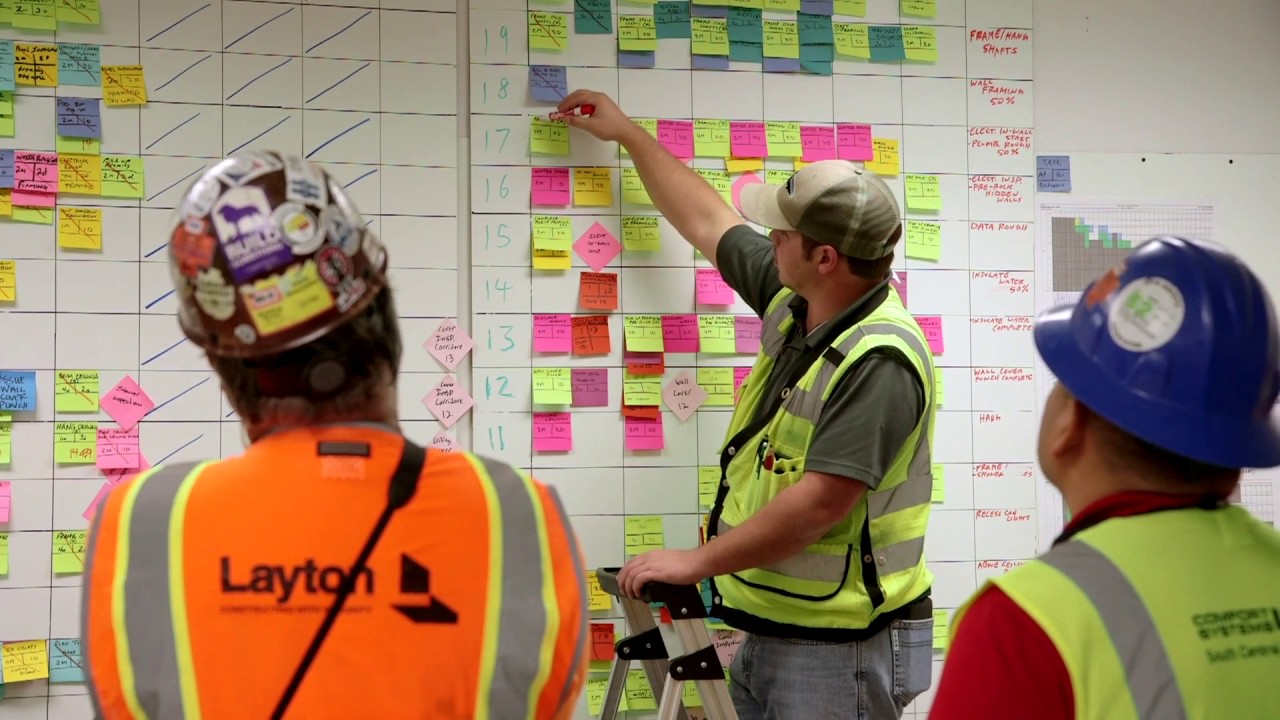

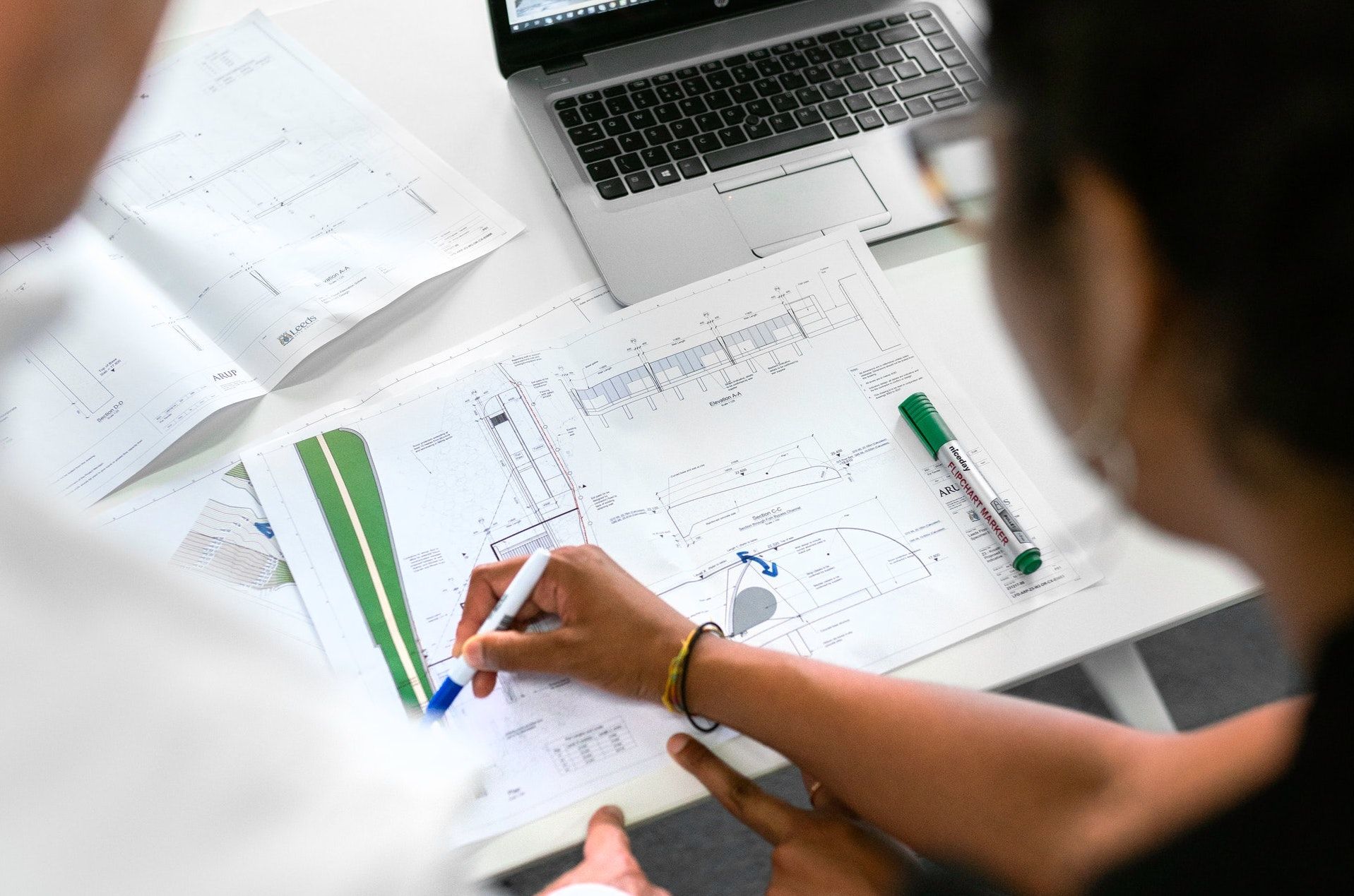


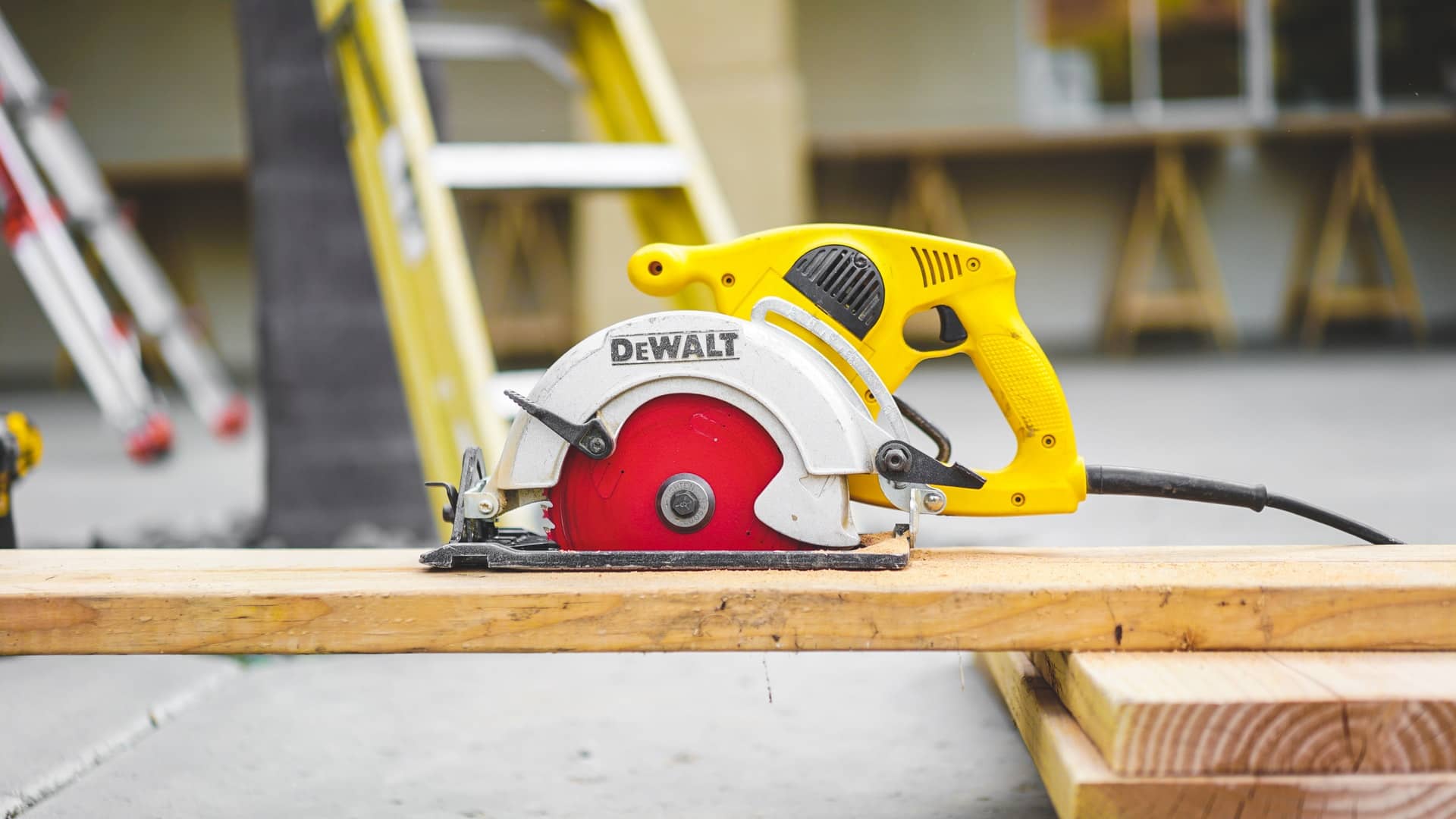
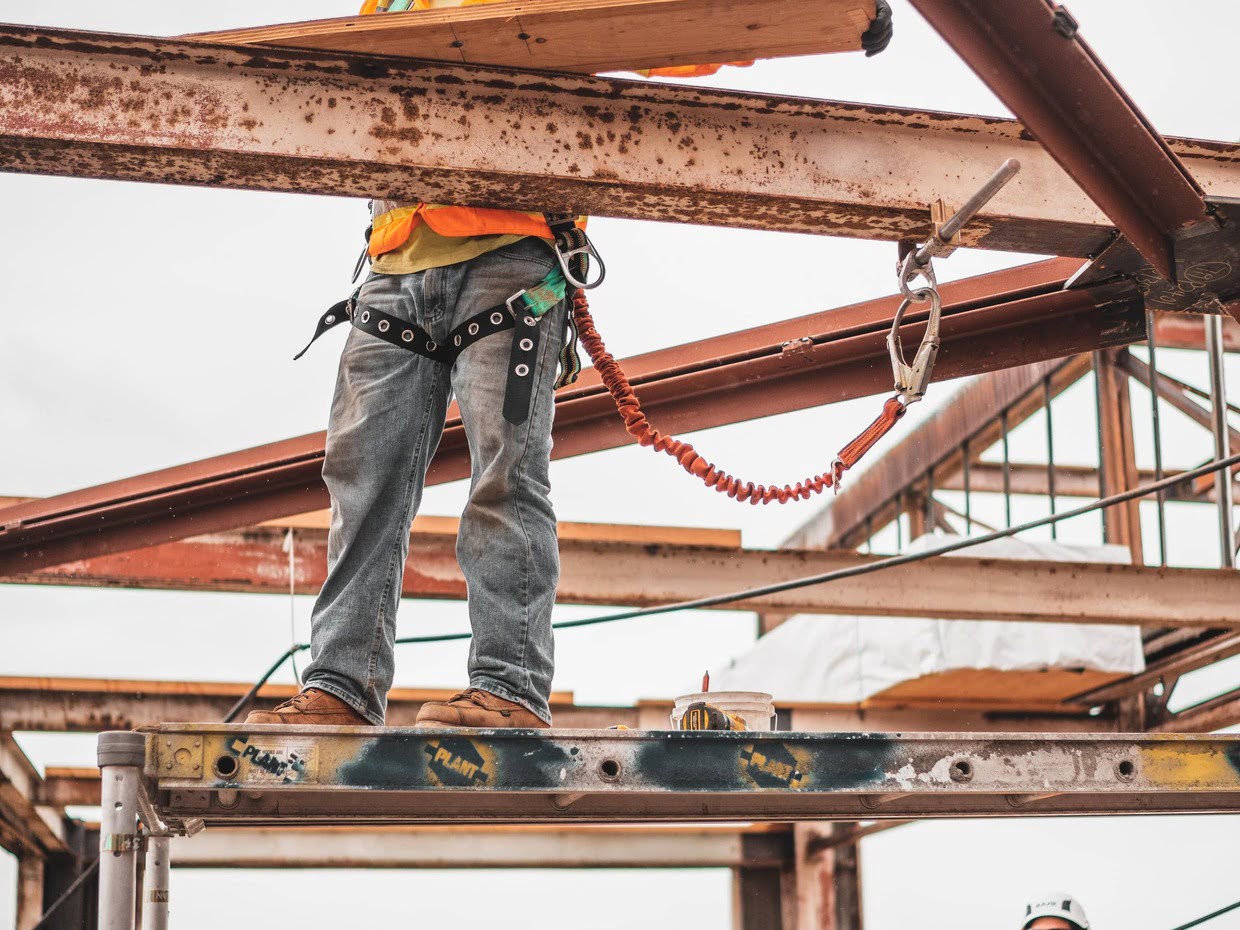
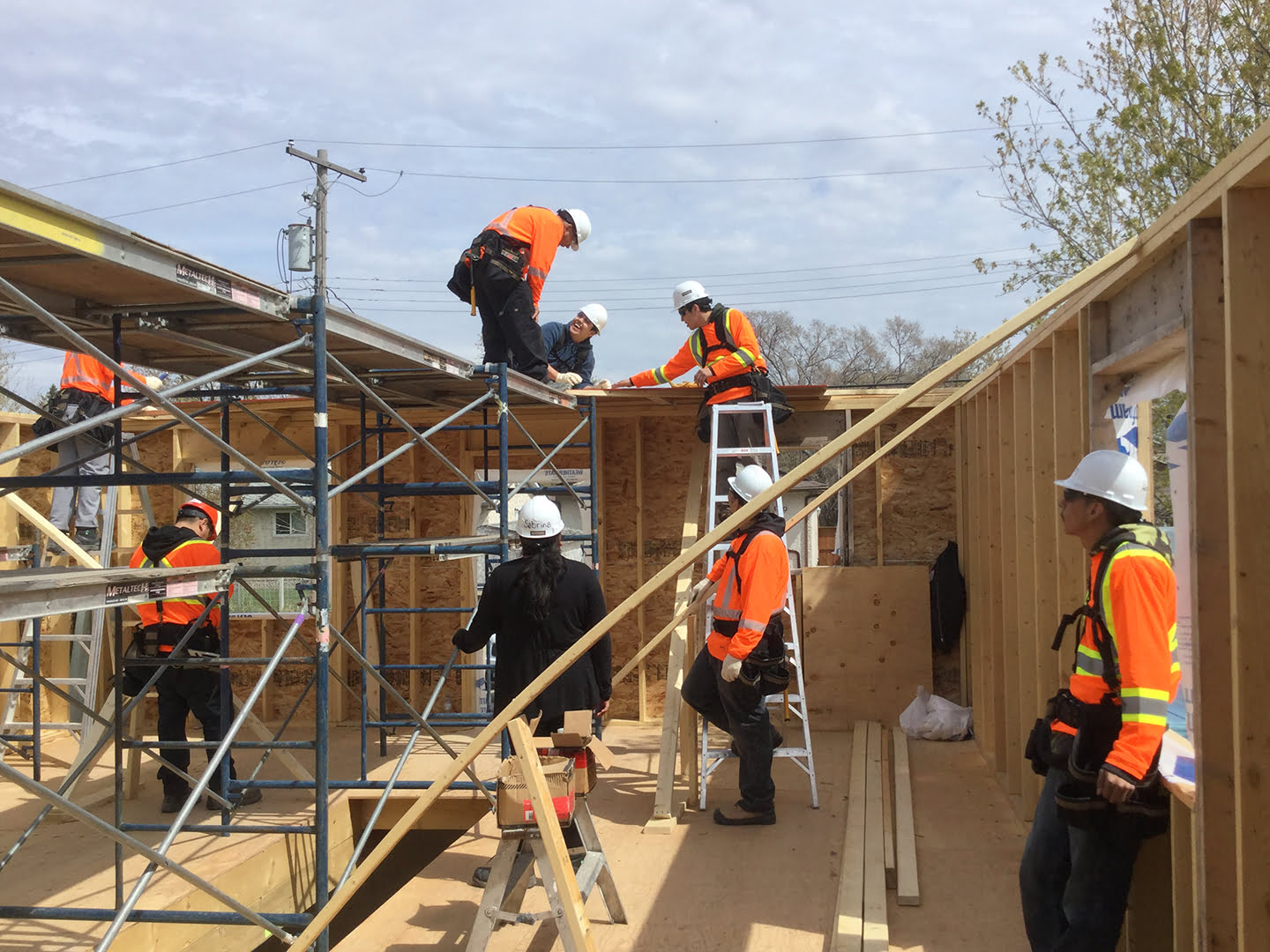
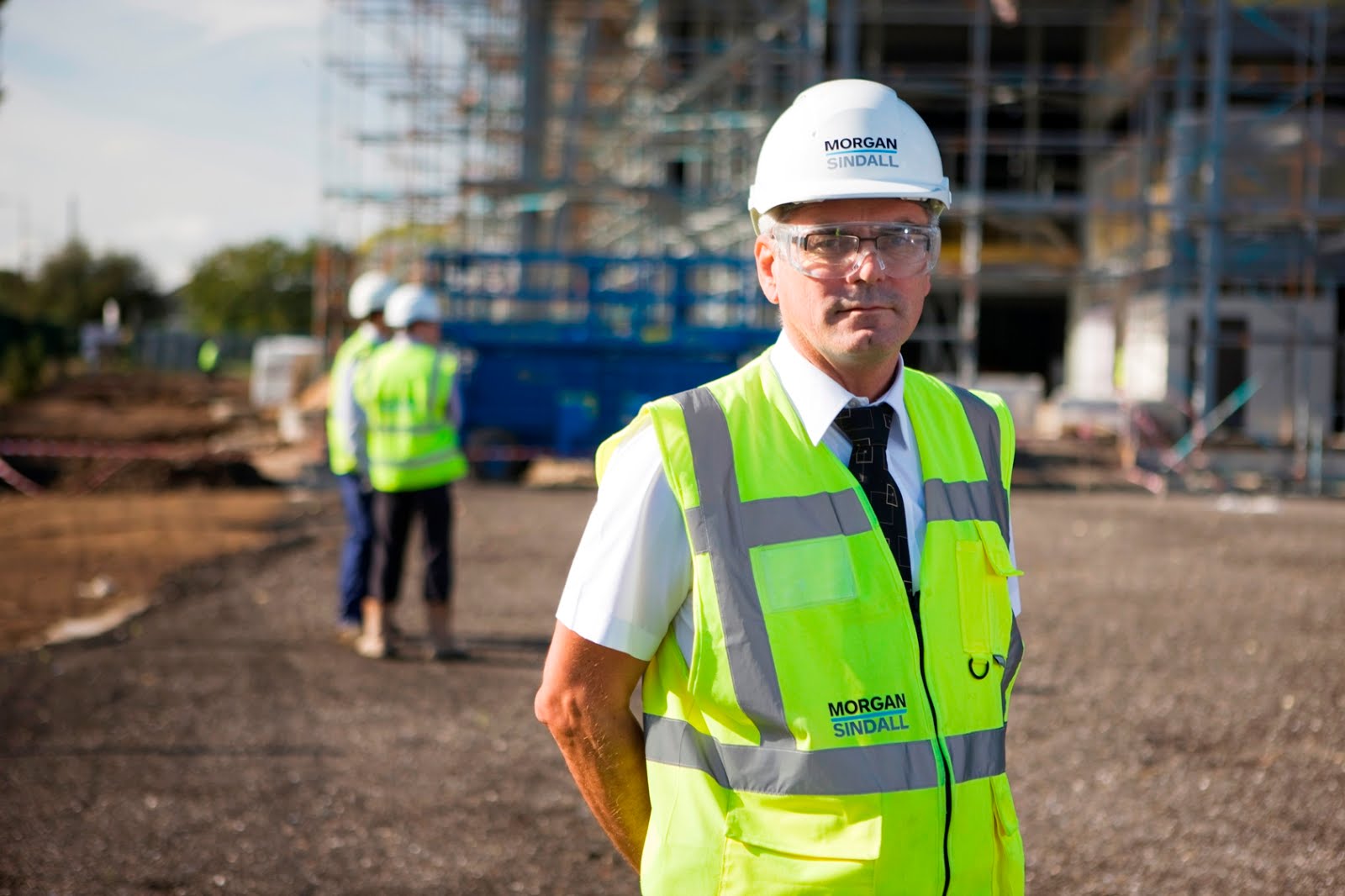
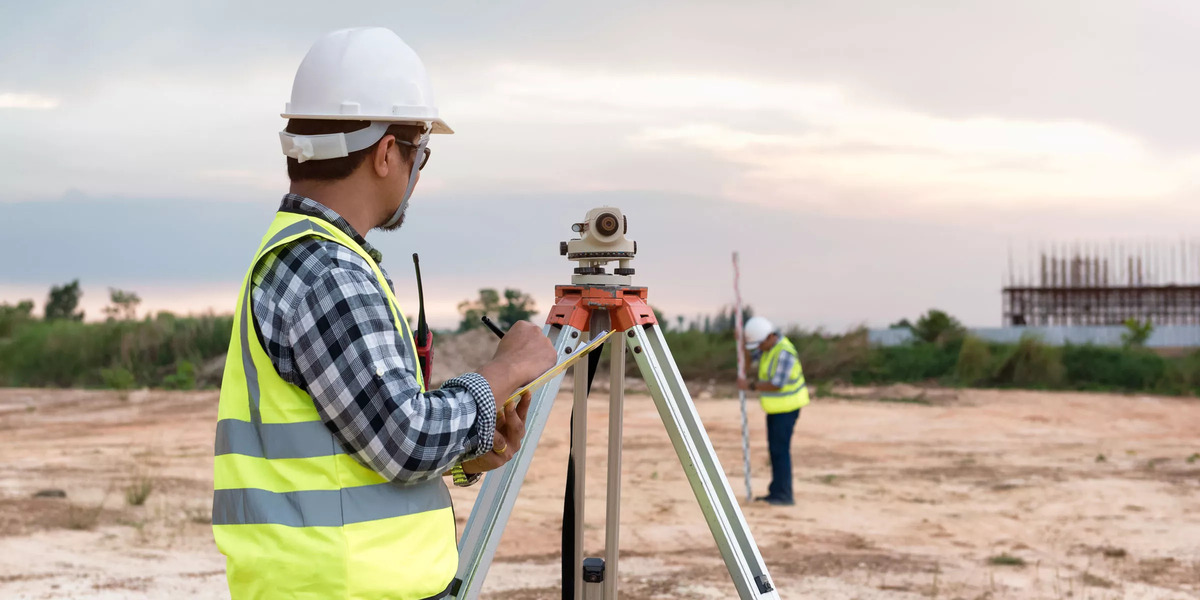

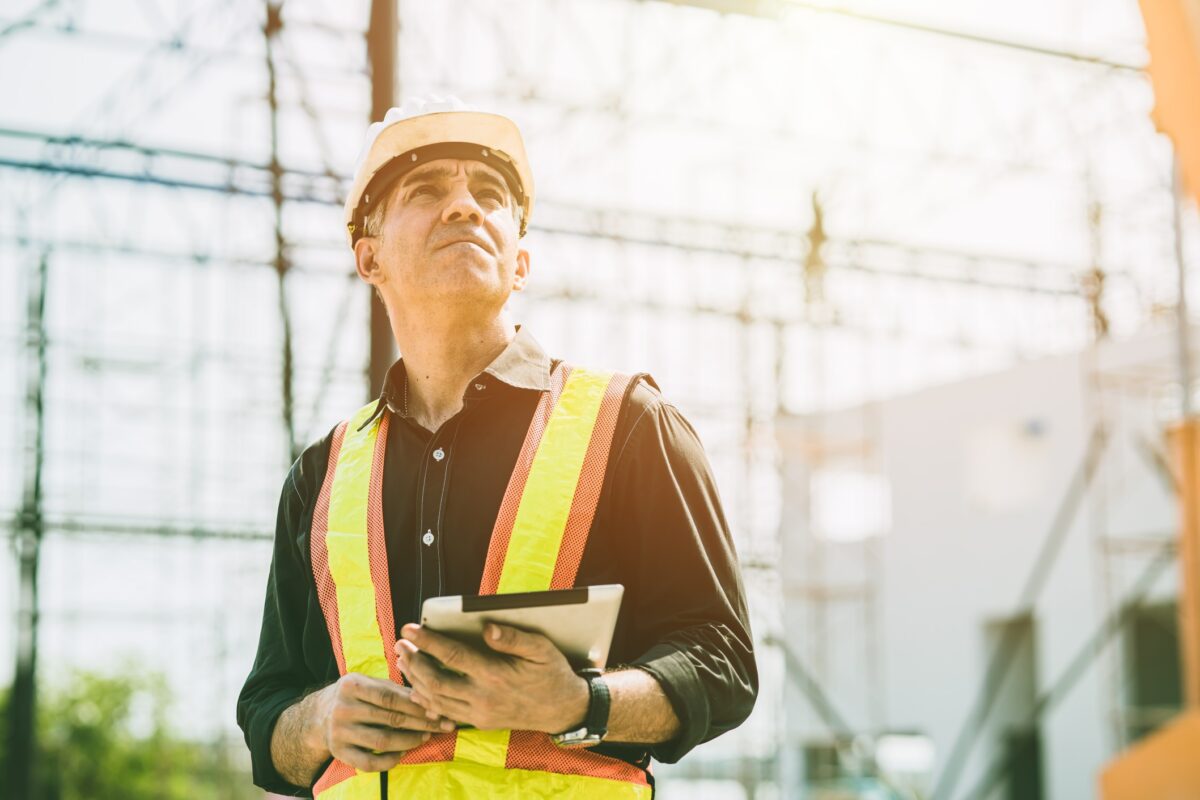

0 thoughts on “What Does A Construction Inspector Do”